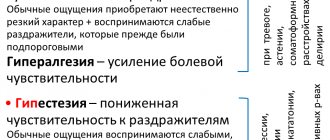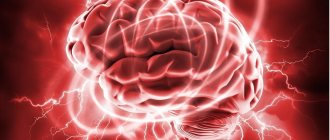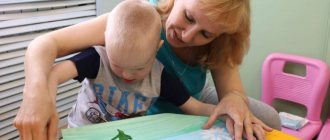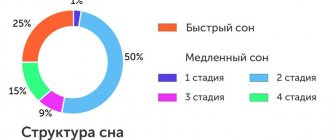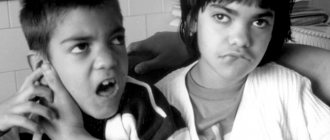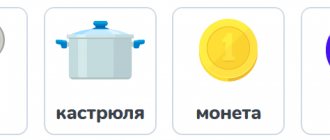Syndrome of increased neuro-reflex excitability
In the first part, you learned what CNS PPP is and what the role of a pediatric neurologist is in the treatment of this disease. And one of the syndromes of this disorder is muscular dystonia syndrome.
Here I will focus on the syndrome of increased neuro-reflex excitability. This is a fairly common syndrome in children aged 1-4 months. This syndrome manifests itself in the child’s excitability, shuddering, throwing hands, trembling chin, screaming for no apparent reason, and sleep disturbance. Such disorders are most often associated with somatic rather than neurological disorders.
A child may cry and become restless for many reasons. Intestinal colic is very common in young children. After the 1st month, pediatricians and pediatric neurologists recommend giving the child vitamin D, the lack of which can cause agitation. Children can get colds or become overheated or hypothermic. A child may scream because he is hungry. And there is even evidence that children may experience spontaneous, unreasonable screaming. The experience of a pediatrician is very important here, and, if necessary, consultation with a pediatric neurologist, and possibly a surgeon or other specialist. People often come to me with such complaints to rule out increased intracranial pressure in a child.
Indeed, increased intracranial pressure in children does occur, but, firstly, very rarely, and secondly, contrary to generally accepted opinion, when intracranial pressure increases, children are lethargic and drowsy, and not excitable. Does an adult scream when he has a headache? No. But when the stomach hurts, both children and adults will worry and scream. Many people also claim that if a child does not sleep well, this is a sign of increased intracranial pressure. A newborn baby naturally has an immature nervous system. They often have sleep disturbances.
Children have not formed a “biological clock” (sleep-wake). They may confuse day with night, may sleep for 15 minutes during the day, etc. Clearly such a “biological clock” is formed in children only after 3 years. Experienced pediatric neurologists explain all this to parents during an office visit or a home call.
Due to this immaturity of the central nervous system, children may even experience seizures. And they can be caused by a violation of the metabolism of microelements (magnesium, potassium, calcium), lack of vitamin B6, etc.
Speaking about the immaturity of the nervous system of newborns, I would immediately like to tell you about another syndrome: the syndrome of vegetative-visceral disorders. Often, to make it clearer to people, pediatric neurologists in Moscow tell the child’s parents that this is VSD (vegetative-vascular dystonia) in children under 1 year of age. This syndrome is characterized by the child’s “marbling of the skin,” a possible “blue” upper lip, sweating of the arms and legs (although this can also occur with a lack of vitamin D), “blue” feet, regurgitation and other disorders. I notice that such children react to weather changes, more often to precipitation (snow or rain) or strong wind. Such autonomic disorders do not require drug treatment, but decrease and then completely disappear with age.
The article uses photographs of Anna Geddes.
Author: Voronov Igor Anatolyevich, pediatric neurologist of the PreAmbula network, candidate of medical sciences
Cost of seeing a neurologist:
Primary 2050 rubles, Repeated 1900 rubles.
How to reduce the cost?
MAKE AN APPOINTMENT PRICES
What is hyperactivity
Hyperactivity is a condition in which there is increased excitability of the child, which is manifested by excessive speech and motor activity. This is often combined with attention deficits and impulsivity, which in medical terms is called attention deficit hyperactivity disorder (ADHD). Very often this is accompanied by behavioral disorders and emotional instability. As a result, the child is constantly in a state of nervous tension, which he tries to relieve through physical activity. In general, he simply cannot behave differently, much less consciously correct his own behavior.
But the child’s increased excitability causes a lot of problems, both for his parents and teachers, and for himself. Disruption of the nervous system leaves an imprint on his relationships with peers and adults, which ultimately often becomes the cause of psychological problems and complexes.
At the same time, there may be a lack of attention, which most often forces parents to seek help from specialists. Problems with concentration and perseverance cause negative feedback about the child’s work in classes in kindergarten, other preschool institutions, and then at school.
According to medical statistics, hyperactivity syndrome is diagnosed in 6% of school-age children and 3% of adolescents, while boys suffer from it 5-6 times more often.
A neurobehavioral disorder should not be confused with hyperactivity. The vast majority of children cannot sit still for a long time and strive for active games. But with hyperactivity, there is a truly pathological inability of the child to behave calmly, which creates problems even for himself. This term means not just a diagnosis, but a whole complex of disorders, united by the presence of individual signs that do not correspond to a specific age, which explains the versatility of the manifestations of the syndrome.
Thus, ADHD can manifest itself in different children in different ways, on the basis of which its varieties are distinguished. Some children may have both excessive mobility and attention disorder at the same time, while others may have only hyperactivity or problems with concentration. In the latter case, the child is impulsive; he constantly receives complaints from caregivers and teachers due to bad behavior, which, it must be admitted, he is not able to control on his own. But at the same time, such a child can successfully cope with solving problems that require concentration and attention. There are also situations when only attention disorder is present, but the child is not hyperactive, or mixed types are observed.
Therefore, reasons to consult a doctor if you suspect hyperactivity are:
- constant high activity and problems with concentration;
- the occurrence of difficulties when communicating with other people due to behavioral characteristics, in particular other children on playgrounds;
- persistent poor behavior in preschool settings;
- poor school performance and bad behavior;
- a complete lack of desire or even the ability to do homework independently;
- aggressiveness towards other people and animals.
Diagnosis of ADHD
No matter what kindergarten teachers, teachers, other parents or acquaintances say, only a doctor can accurately assess the child’s condition, and only a neurologist or child psychologist can diagnose hyperactivity syndrome with or without attention impairment. Teachers or other people communicating with the child can only draw the parents’ attention to certain personality traits of the child, the existing difficulties when working with him, and suggest the need to obtain specialist advice.
When diagnosing ADHD, the doctor must exclude other pathologies of the nervous system and developmental disorders. Therefore, consultations with both specialists – a neurologist and a psychologist – are often required. This will allow you to accurately differentiate ADHD from:
- consequences of psychological trauma, anxiety disorders;
- autism spectrum disorders (may be combined with hyperactivity);
- certain types of schizophrenia, epilepsy;
- endocrine pathologies.
Therefore, the diagnosis cannot be made at the first consultation with a doctor. To do this, in addition to a detailed conversation with the child and his parents, it is necessary to observe his behavior, as well as conduct neuropsychological testing. To exclude other pathologies, the following are prescribed:
- general and biochemical blood test;
- EEG;
- MRI of the brain;
- ECG and other studies.
Treatment of hyperactivity
Attention deficit hyperactivity disorder necessarily requires complex treatment. Today you can often hear that over time the child will outgrow his increased excitability and his condition will return to normal, so there is no need to do anything. Grandparents are especially often guilty of such statements. In reality, in the absence of competent correction, the problem will not go away, but will only transform.
As the child grows older, without treatment, one can only count on the elimination of excessive mobility. But since the disturbance in the functioning of the nervous system persists, it will be replaced by fussiness and constant internal restlessness. Adults with ADHD who are unaware of their diagnosis are characterized by irresponsibility, conflict, and a tendency to take unnecessary risks. It is also difficult for them to independently organize and plan their activities, as well as follow the developed plan.
Therefore, when receiving a diagnosis of attention deficit hyperactivity disorder, you should not panic, but strictly follow the recommendations of a neurologist and psychologist in order to properly organize the rehabilitation process. This will significantly improve the child’s condition and help him avoid many problems.
Since ADHD is a multifactorial disorder and can manifest itself in different ways, treatment for each child is selected strictly individually. This may include:
- drug therapy;
- lifestyle correction;
- change in diet;
- manual therapy with elements of osteopathy.
To effectively treat increased excitability, parents and their children are recommended to work with a psychologist. This will help create a favorable atmosphere in the family and improve interpersonal relationships. Working with a psychologist will help create compensatory mechanisms that will help the child better control his own behavior, teach him to get along with peers and learn better. It is also recommended to obtain consultations from a defectologist who will help build the right program for correcting existing disorders.
Conflicts between parents aggravate ADHD.
Parents of children with officially diagnosed hyperactivity should talk with their kindergarten teacher, school teachers, and others who work with them. The purpose of this conversation is to convey information about the child’s characteristics and how best to organize the educational process so that it is as comfortable as possible for him and the teacher, and does not provoke difficulties in communication.
Drug therapy
Medicines are not always prescribed to children. Most often, the need for them arises when lifestyle corrections are ineffective. Drug therapy is mainly aimed at eliminating the symptoms of ADHD and alleviating the child's condition. This may include:
- sedatives;
- nootropics;
- mild sleeping pills;
- psychostimulants;
- neuroleptics;
- antidepressants (in severe cases).
Lifestyle correction
Children with increased excitability just need to be loved. They need to be praised for the slightest successes and encouraged to continue. Parents should focus on the positive aspects of the child’s personality and talk with him in a calm, friendly tone about accepted norms and rules of behavior in society.
Hyperactive children need a clear daily routine more than others. Therefore, if there is none, it should be developed. The child should wake up, walk, eat, and go to bed at the same time. This will allow you to better control the course of ADHD.
It is important to try to allocate personal space for the child. If it is not possible to give him a separate room, you need to arrange at least his own corner where he can isolate himself from adults. But since it is difficult for children with increased excitability to clean up and maintain order on their own, you need to be prepared for a mess and a long process of instilling the skill of cleaning up after yourself.
As mentioned earlier, children with ADHD can be forgetful. Therefore, parents, together with them, can create special temporary or permanent checklists, which should help the child not to forget anything important. It would be a good idea to leave stickers and various reminders as needed.
Sports activities have a very good effect on the condition of hyperactive children. But these should not be team sports, but martial arts, swimming, equestrian sports, etc.
Changing food
If there is increased excitability, it is recommended to reduce the amount of sweets in the child’s diet and other sources of simple carbohydrates. At the same time, nutrition should fully cover the body’s needs for proteins, vitamins and minerals.
Manual therapy with elements of osteopathy
Manual therapy can work real miracles with children who are highly excitable. Using special, absolutely safe manual techniques, the doctor can effectively influence the consequences of hypoxia and other biological disorders, creating conditions for normalizing the activity of the nervous system. Manual therapy sessions allow you to influence the cause of ADHD, which no other treatment method can do. As a result, the child becomes significantly calmer, his ability to perceive and process information improves, as well as his success in school.
Thus, hyperactivity cannot be called a dangerous disease. But such a condition can significantly reduce the quality of life of the child and his loved ones, and subsequently move with him into adulthood. But there is no need to panic when receiving such a diagnosis. Today, ADHD can and should be fought, but in order for the fight to be effective, the help of qualified specialists is required. ADHD symptoms may worsen with changing seasons, illness and other factors, but this does not mean giving up, but is an inevitable phenomenon that must be accepted and continued treatment. As a result, your adult child will be able to live a full life, not experience difficulties in communication, and achieve any goal.
1 1 vote
Article rating


